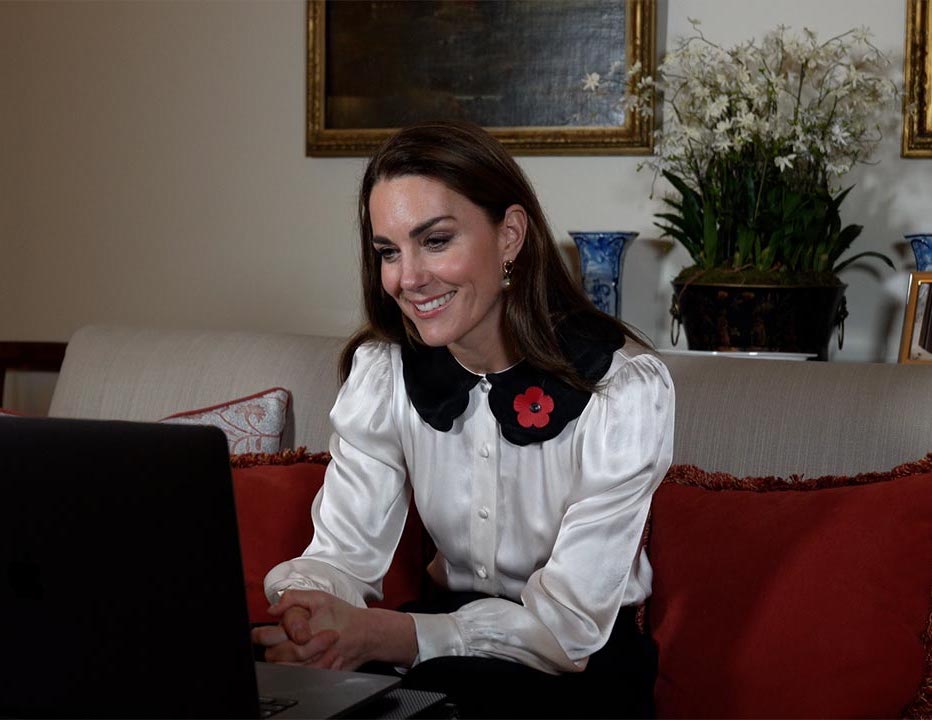Kate Middleton is right – our misunderstanding of children’s early years development is dangerous
The learning that takes place in children’s first five years has an immense impact on their future lives, says Brett Wigdortz. Yet the importance of these early years is routinely ignored


On Friday, the royal family hit headlines and it had nothing to do with The Crown. On 27 November, the Duchess of Cambridge released a landmark report, commissioned by the Royal Foundation and conducted by Ipsos Mori, on attitudes and understanding around early years development and parenting.
In addition to publishing research on the loneliness and mental health of parents, the study revealed crucial insights about public knowledge of children’s early years. Whilst almost all (98 per cent) of those surveyed believed that nurture was essential to a child’s lifelong outcomes, only one in four recognised the specific importance of the first five years to a child’s lifetime health and happiness.
To those who don’t work in the early years sector, these figures might not mean too much. But they’re a stark indication of the severe lack of understanding around under-5s development. This isn’t to point the finger at individual parents – they’re under extreme pressure as it is – but these stats should be a wake-up call to society that something desperately needs to change. Because this misunderstanding around early years development isn’t just unfortunate – it’s downright dangerous.
As Kate Middleton explained in her virtual speech last week, the learning that takes place in children’s first five years has an immense impact on their lifelong cognitive, social and behavioural experiences – the fastest rate of brain development in the human lifespan is between birth and three years old – yet the importance of these first years is routinely ignored. Our collective misunderstanding means we don’t invest in support for under-5s, and then spend years grappling with the issues which took root during this time.
The lack of attention and support for early years development is dangerous on a personal level but it’s a searing social issue too. We know that children from disadvantaged backgrounds do less well in education than their more advantaged peers, but the attainment chasm has widened before they even get to school. By the time children turn five, there is already a 4.3 month development gap between those from poorer backgrounds and their better off peers; less than half of the poorest four year olds are ready for school, compared to two thirds of other children. And this gap is incredibly difficult to close; 40 per cent of the development gap between disadvantaged and advantaged pupils aged 16 will emerge before they reach five. In simple terms, we can’t say we’re serious about ending UK inequality if we’re not serious about the early years.
As someone who’s spent nearly two decades in education, I’ve seen the children behind these figures and I know how they’ve been let down by our broken model of early years support. I set up educational charities Teach First and Teach For All, and the early years initiative, tiney, and so I know how disadvantage entrenches itself from very early on. I’ve seen children come into reception who are unable to properly communicate, aren’t toilet trained, and who literally didn’t know how to play – all because they didn’t have access to the right help before five. We know that children need structured support for their cognitive, social and behavioural development and that’s why we have schools, yet we pretend that doesn’t matter at the most important developmental stage of their lives.
So, how can we make sure that all children get the early years support that they need? Nothing short of a complete overhaul of the way we deliver under-5s care. The current model of support for parents is uneven and expensive, and relies on staff who aren’t adequately trained and definitely aren’t adequately paid: a survey this year by the Social Mobility Commission found that one in eight childcare workers earns less than £5 an hour and the average hourly wage is over a pound below the national living wage. We essentially still think of those in charge of young children as babysitters, not educators, and this prejudice means we disregard the value of their work and the pivotal role they play in shaping our children’s development.
Giving certified childcarers the respect they deserve is the first step towards solving our early years crisis. What this practically means is paying them properly and investing in their training, support and professional development to reflect their work as highly skilled educators. This, in turn, will attract more talent to the sector and expand the pool of great practitioners who are leading our children through their crucial early years.
Other vital steps include greater government focus on the benefits of trained childminders and nursery workers who follow the Early Years Foundation Stage framework and sufficient investment to pay for quality childcare for parents who can’t afford it, which would also have the advantage of helping parents back to work.
With the pandemic hitting families hard and forcing inequality rifts ever wider, the need for early years action has never been more vital. We mustn’t let the findings of last week’s report fade from our minds but instead use it to inspire this desperately overdue change. Will we finally prioritise early years care and education? The next generation is waiting on our answer.
Brett Wigdortz OBE is the Founder of Teach First and the CEO and founder of early years initiative, tiney.




Join our commenting forum
Join thought-provoking conversations, follow other Independent readers and see their replies
Comments